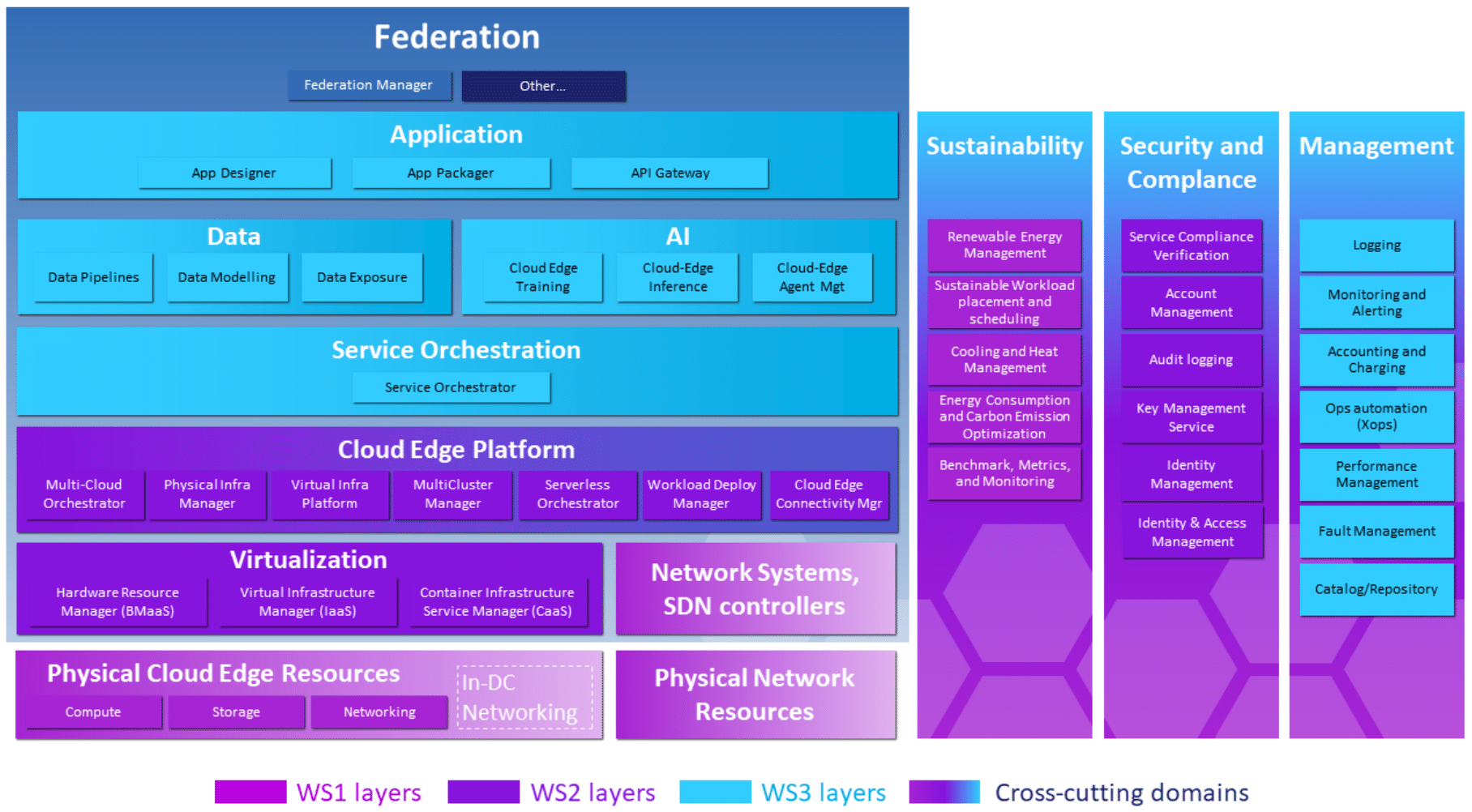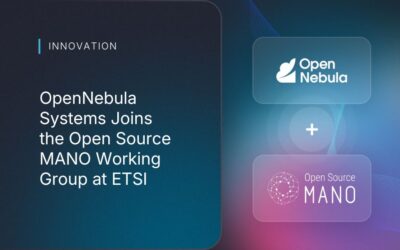OpenNebula Systems, as chairing company of the IPCEI-CIS Industry Facilitation Group and original co-leader of its Architecture Task Force—along with SAP—welcomes the official publication today of the IPCEI-CIS Reference Architecture. This milestone marks a significant step towards building an open, interoperable digital infrastructure in Europe, and offers to the whole tech industry a clear path as to how to integrate their current and future technological components and cloud services as part of a sovereign stack for the Cloud-Edge Continuum.
In December 2023, the European Commission approved the Important Project of Common European Interest on Next Generation Cloud Infrastructure and Services (IPCEI-CIS). With €1.2 billion in State Aid and €1.4 billion in private investments, the IPCEI-CIS is the largest open source project in the history of the EU. Supported by 12 Member States and more than 120 industrial partners, its aim is to develop the first interoperable and openly accessible data processing ecosystem in Europe—a model built on cooperation among competitors and on achieving vendor neutrality and tangible technological sovereignty while remaining aligned with the EU’s strategic values and priorities.
As many have recognised in recent months, the global digital economy has become deeply dependent on Big Tech corporations. This reliance poses risks to the political autonomy of democratic institutions. Nowhere is this more evident than in the cloud market, where a handful of hyperscalers dominate the entire value chain. The IPCEI-CIS seeks to provide a “made in Europe” alternative that will reduce entry barriers, will foster competition and innovation—including for local “proximity cloud” providers—and will address critical issues such as cybersecurity and the sustainability of digital infrastructures.

A Foundational Framework for Europe’s Digital Sovereignty
The release of the first version of the IPCEI-CIS Reference Architecture lays the foundation for these ambitions. The document offers a structured, layered framework to guide the development of a federated cloud-edge ecosystem capable of supporting next-generation data-driven applications across sectors such as manufacturing, mobility, and energy, as well as enabling distributed Artificial Intelligence.
This modular architecture spans eight core layers—from physical infrastructure and network systems, up to virtualization, platform services, orchestration, data, AI, and application—ensuring interoperability across distributed, multi-provider edge cloud environments. Cross-cutting domains include federation mechanisms aligned with the EU Data Act, integrated management capabilities, robust security and compliance, and sustainability by design.
It is worth noting that the IPCEI-CIS Reference Architecture is not just a theoretical exercise. Several pilot scenarios—such as the Virt8ra multi-provider cloud infrastructure, based on OpenNebula—are already underway to validate its design and implementation in real-world environments, identifying technological gaps and refining integration mechanisms with additional components. Future iterations will incorporate these insights to offer increasingly detailed and actionable implementation guidance.
OpenNebula Systems: Driving Collaboration and Technological Integration
As chairing company of the IPCEI-CIS Industry Facilitation Group, and one of the original coordinators of its Architecture Task Force, OpenNebula Systems has played a central role in defining this first Reference Architecture. Our team has worked closely with a diverse group of leading European partners—including SAP, TIM, Deutsche Telekom, and others—to co-author this first version. This collaboration reflects the shared commitment and expertise of multiple organizations dedicated to building a federated, interoperable cloud-edge ecosystem aligned with Europe’s digital sovereignty goals.
Looking ahead, this initial version will also serve as the baseline for future IPCEIs in distributed AI and edge computing infrastructure, and it holds the potential to become the technological core of pan-European projects such as the EuroStack.





0 Comments